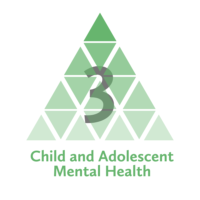Search results
-

A thinner cortex predicts a better response to CBT
Research on magnetic resonance imaging (MRI) to identify neural markers that might predict a child’s response to treatment for obsessive-compulsive disorder (OCD).
Read more -

Dr Jon Goldin on the coronavirus and child mental health
Dr. Jon Goldin Consultant Child and Adolescent Psychiatrist, working at Great Ormond Street Hospital discusses child mental health in the wake of the coronavirus pandemic.
Read more -

-

How can a robot help your mental health?
Cath Kitchen, Head Teacher and Project Manager for the DoE AV1 project, and Zoe Johnson ‘Zobot’ explain how this innovative device is helping young people with long term physical and mental health issues to ‘virtually’ attend school.
Read more -

Developmental Language Disorder in Children and Young People
Developmental language disorder (DLD) is diagnosed when a child’s language skills are persistently below the level expected for the child’s age. In DLD, language deficits occur in the absence of a known biomedical condition, such as autism spectrum disorder or Down syndrome, and interfere with the child’s ability to communicate effectively with other people. Expressive language is characterised by non-specific words and short simple sentences to express meanings beyond the age at which children may be using more complex language.
Read more -

Digital interventions for young people: addressing the gap between development and implementation
Closing the gap between reliability and safety of mental health apps as an intervention.
Read more -

Most cited CAMH paper joint #3 of 25: The contribution of mindfulness‐based therapies for children and families and proposed conceptual integration
Paul H. Harnett, Sharon Dawe.
Read more
Key Practitioner Message includes; Understanding the mechanisms of change is important in the future development of mindfulness‐based family interventions -

In Conversation… Interpersonal Psychotherapy with Dr. Fiona Duffy
Fiona Duffy explains IPT and how it differs from CBT. They touch upon interpersonal risk and maintaining factors, and how the therapy has been adapted for children and young people.
Read more -

Insecure paternal attachment confers a high cost on society
Youth that exhibit antisocial behaviours can impose a high cost on society due to the need for health, social and economic support in adulthood. Now, researchers have studied whether insecure attachment underlying antisocial behaviour contributes to or even adds to these costs.
Read more -

In Conversation… Mood Disorders with Dr. Gordana Milavić
Gordana discusses how conceptions of mood disorders have changed throughout career, highlighting changes such as whilst she was training it was thought that children were unable to get depressed.
Read more